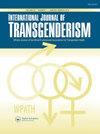Family support and discrimination and their relationship to psychological distress and resilience amongst transgender people
Q1 Social Sciences
引用次数: 55
Abstract
Abstract Background: Given the broader social contexts in which transgender people and their families live, the latter can be either an important source of support, or bring with them yet another source of discrimination. Although historically transgender people almost uniformly experienced discrimination from families of origin, recent research suggests that growing numbers of transgender people are supported by their families. Aims: The study reported in this article sought to examine the relationships between family support and discrimination, and psychological distress and resilience. Methods: A convenience sample of 345 transgender people living in North America completed an online questionnaire constructed by the authors. The questionnaire included demographic questions and single items questions about emotional closeness to family, gender-related support from family, and discrimination from family. The questionnaire also included standardized measures of gender-related discrimination, resiliency, social support, and psychological distress. Results: Participants reported moderate levels of gender-related family support, with non-binary participants reporting the lowest levels of gender-related family support. Participants whose families provided greater gender-related support reported greater resilience and lower levels of psychological distress; however participants who reported higher levels of gender-related discrimination from their families reported greater psychological distress. The findings suggest that emotional closeness to family may help mitigate the effects of general discrimination on psychological distress. Discussion: Drawing on the findings reported, the paper concludes by discussing the importance of focusing on family members in the context of affirming clinical approaches to working with transgender adults.跨性别者的家庭支持和歧视及其与心理困扰和复原力的关系
背景:考虑到跨性别者及其家庭所处的更广泛的社会环境,后者可能是一个重要的支持来源,也可能是另一个歧视的来源。尽管历史上变性人几乎无一例外地受到原生家庭的歧视,但最近的研究表明,越来越多的变性人得到了家庭的支持。目的:本研究旨在探讨家庭支持与歧视、心理困扰与复原力之间的关系。方法:选取居住在北美地区的345名跨性别者作为方便样本,填写作者设计的在线问卷。问卷包括人口统计问题和家庭情感亲密度、家庭性别支持、家庭歧视等单项问题。问卷还包括与性别有关的歧视、复原力、社会支持和心理困扰的标准化测量。结果:参与者报告了中等水平的与性别相关的家庭支持,非二元参与者报告了最低水平的与性别相关的家庭支持。家庭提供更多性别相关支持的参与者报告了更强的恢复力和更低的心理困扰水平;然而,那些受到家庭性别歧视程度较高的参与者报告了更大的心理困扰。研究结果表明,与家人的情感亲近可能有助于减轻普遍歧视对心理困扰的影响。讨论:根据所报告的结果,论文最后讨论了在确定临床治疗跨性别成人的方法时,关注家庭成员的重要性。
本文章由计算机程序翻译,如有差异,请以英文原文为准。
求助全文
约1分钟内获得全文
求助全文
来源期刊

International Journal of Transgenderism
Social Sciences-Gender Studies
CiteScore
5.10
自引率
0.00%
发文量
0
期刊介绍:
International Journal of Transgenderism, together with its partner organization the World Professional Association for Transgender Health (WPATH), offers an international, multidisciplinary scholarly forum for publication in the field of transgender health in its broadest sense for academics, practitioners, policy makers, and the general population.
The journal welcomes contributions from a range of disciplines, such as:
Endocrinology
Surgery
Obstetrics and Gynaecology
Psychiatry
Psychology
Speech and language therapy
Sexual medicine
Sexology
Family therapy
Public health
Sociology
Counselling
Law
Medical ethics.
 求助内容:
求助内容: 应助结果提醒方式:
应助结果提醒方式:


